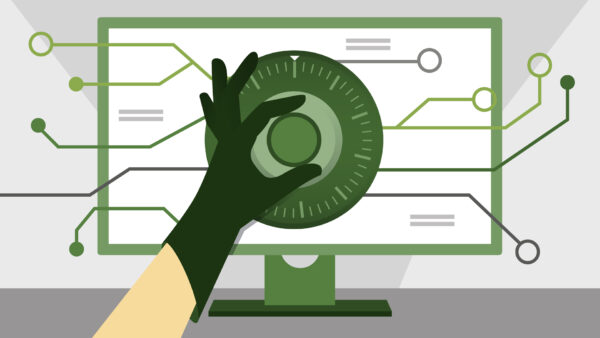Regardless of what stage of history we are in, security has always been just as important. Today, we had not had until the 1990s-we are more aware of security problems because of social media and the internet.
We live in a highly interconnected world. There is an IP address for nearly anything you handle. It has a threat vector when it has an IP address. Cybersecurity is increasing since the threat vectors are growing. Cybersecurity is undoubtedly an excellent field to step into it.
New information, new data, new threat-vectors are always available in security. It is better to learn how risks and threats work and adapt to be successful at your job. Some aspects are essential, but continuous learning is required in the field. Threat vectors are ever-changing, making for an exciting, spectacular career.
What is Cybersecurity in simple words?
Cybersecurity, also known as IT security, means an enclosure of technologies, processes, and practices to avoid the attack, harm, or unauthorized access by networks, computers, programs, and data.
Why is Cybersecurity needed?
It is essential to ensure Cybersecurity since it requires everything related to the defense from the exploitation and harm of criminals and adversaries of our sensitivity data, PII, PHI, personal information, intellectual property information, and government and industrial information systems.
The risk of cybersecurity increases because of global networking and cloud services such as Amazon Web Services to store confidential information and personal data. The fact that cloud systems and increasingly advanced cybercriminals are poorly configured means that your company is increasingly at risk of active cyber-attack or data violations.
Importance of Cybersecurity
The significance of Cybersecurity is rising. Our world is fundamentally technologically more dependent than ever, and there is no indication that this trend will slow down. Personal data is now shared on our social media account pages to the public. Cloud storage services, namely Dropbox or Google Drive, now store confidential information, including social security numbers, credit card details, and bank account details.
The point is that you depend on computer systems every day, whether you are a user, small business, or large transnational corporation. With growing cloud services, poor cloud service security, smartphones, and the Internet of Things (IoT), we have several risks to Cybersecurity, which didn’t exist many decades ago. The difference between Cybersecurity and information security must be known, even though the skills become more similar for both.
Why cybersecurity course?
Cybersecurity is an IT specialized field that is also known as a computer science substream. Cyber Security courses are intended to provide students with the information and expertise needed to protect from cyber-attacks on computer systems, networks, and data. You will learn how to secure computer systems, networks, and cyber-attack data from cybersecurity training programs. Every module will be unique, but the overall objective is to help you learn the computing skills required to prevent attacks and protect people’s data and privacy.
Check cybersecurity skills
- Intrusion Detection: It’s critical to have more powerful intrusion detection software with powerful Trojans and backdoor codes that visually influence your space.
- Malware Detection & Reversing: An organization must recover quickly, almost right after a cyber attack. Therefore, malware detection knowledge holds plenty of growth potential.
- Programming: Any cybersecurity specialist must have a basic understanding of programming languages. It helps to determine the potential for device attacks and then establish countermeasures.
- Black-Hat Thinker: It is essential to think like a hacker to protect a system thoroughly. Instead of doing damage control, it is helpful to predict an attack and plan in advance.
- Risk analysis: Skilled cybersecurity professionals are required in their development to identify risks, monitor identified risks, and identify new threats.
- Cloud Security: With the rising number of cloud threats, cloud security expertise is a precious thing. It’s known that Cloud is exposed to many dangerous attacks.
- Security Analysis: The analysis of security is an essential skill that cybersecurity professionals need. Therefore in any organization, a security analyst is considered to be a significant designation.
Cybersecurity course details
Modern life is focused on online services, so it is vital to understand cybersecurity threats better. Cybersecurity courses are offered in India in different fields. There are many choices open for candidates prospecting for their cybersecurity careers.
Candidates can take Cyber Security courses in the UG & PG levels, including graduation, diploma, and certification.
- Degree Cyber Security courses: After completing class 12th, candidates can graduate with either BTech or BSc in Computer Science (CS) & Cyber Security. BTech degrees have four years, and a BSc in CS / Cyber Security has a 3-year course duration.
- Diploma Cyber Security courses: Diploma Cyber Security courses for both UG and PG levels are open to the applicants. The period is from 10 months to 1 year for UG & PG diploma courses.
- Cyber Security certifications: Cyber Security Certification courses are mainly online and short-term courses. The length of the course will vary from 3 to 6 months.
The cybersecurity bootcamps are specially designed training courses that don’t require any previous computer security knowledge. Anyone interested in enhancing their digital information safety at home or work can enjoy it. This course will strengthen online security around the globe and include topics such as malware and trojan viruses, network security, Graph game(그래프게임), identity theft, and risk management. Network attacks like DDOS and botnet attacks are often identified and demonstrated with real examples from recent decades.
Family analytical models such as the CIA security threat system are illustrated, and examples show how such threats could degrade real assets. The course also introduces the fundamental analysis of cybersecurity risks by providing an overview of how matrices of threats can prioritize risk decisions. In the framework of network security engineering techniques, risks, vulnerabilities, and attacks are analyzed and mapped.
Final words
Many training providers offer a wide variety of cybersecurity courses taught by highly trained and knowledgeable trainers, whether you wish to keep yourself protect while internet browsing or to enhance your penetration tests and network security analysis skills.





